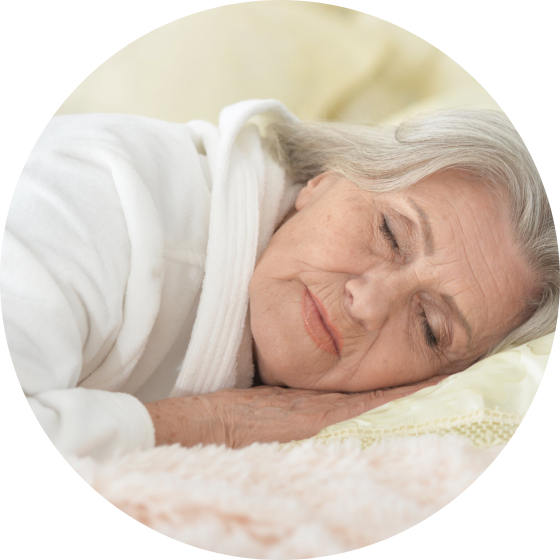Aging and Sleep
Last updated: December 2020
Home > Information & Support > Adults > Sleep Hub >It is a common misconception that sleep needs decline with age. It’s not about needing less sleep, but unfortunately as you get older sleep quality declines and you experience a change in sleeping patterns:
- Experience more frequent wakings in the night
- A loss of Non-REM Stage 3 sleep (which means sleep is less refreshing)
- More daytime napping
- Less of a drop in body temperature during sleep as you age
- Change in circadian rhythms leading to earlier bedtimes and earlier wake-up times
- Lifestyle changes
Studies have shown that changes in production of hormones, such as melatonin and cortisol, may also play a role in disrupted sleep in older adults. As people age, the body secretes less melatonin, which is normally produced in response to darkness that helps promote sleep by coordinating circadian rhythms.

Health conditions
As you get older, there’s a higher risk of health conditions that can compromise sleep for example pain, heart disease, diabetes and bladder problems. Equally some medications can cause sleep issues.
Older people are also more at a risk of a handful of sleep disorders too such as insomnia, obstructive sleep apnoea, restless legs syndrome and REM sleep disorder.
How to improve sleep
There are all sorts of ways in which older people can help themselves to a better night’s sleep – all of them are really based on good old-fashioned common sense such as taking a look at the bedroom environment. Mostly it’s just a case of adjusting daily routines as sleeping patterns change – and trying to limit the cat naps!
Practical sleep tips for over 50s
Download full colour or print-friendly advice sheet
